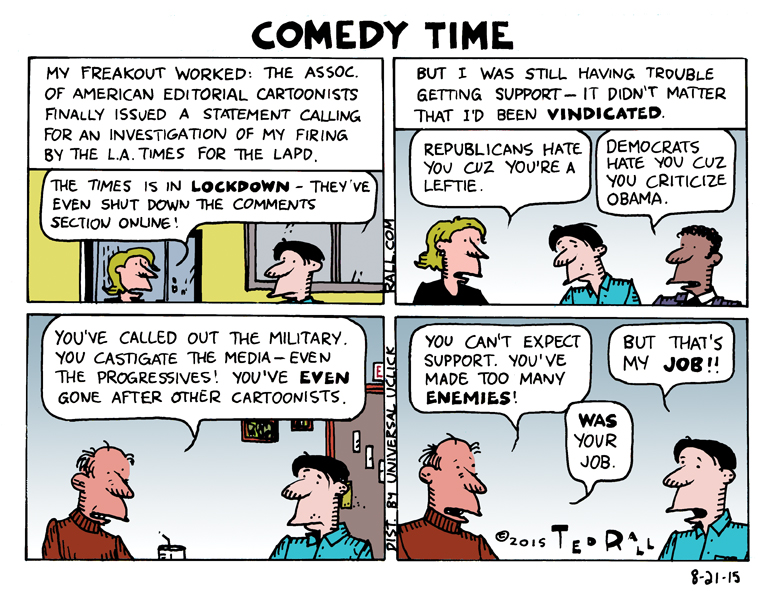
Campaign Ad: Paul Ryan for President 2020.
Speaker Ryan speaks into the camera.
“Impeaching a president from my own party wasn’t an easy decision,” Ryan says, looking sober as footage of disgraced former president Donald Trump departing the White House for the last time appears.
“Sometimes principle” — he pauses for a half-beat — “comes before party.”
A full beat.
“Country always comes first.”
Narrator: “He stood tall when America needs him most. Ready to make the tough decisions when they matter most. Paul Ryan for President.”
Trump-haters want Democrats to push for impeachment. Setting aside the Dems’ congenital cowardice and the arithmetic — a minority party can’t impeach anyone — the real danger to Trump is his nominal Republican allies.
On the surface, Congressional Republicans appear to have been shocked and awed by the president’s surprise victory and ideologically aligned with a Trump Administration whose hard-right cabinet is prepared to grant every item on the GOP’s wish list. But you don’t have to look hard to see that the pre-November split between the party’s old guard (Ryan, John McCain, Mitch McConnell) and the Trump insurgency remains.
The Donald struts the marbled corridors of the capital, his head held high like Caesar. Beneath their togas, the senators’ sharp knives await.
This is speculation, but I bet Republicans with presidential ambitions — Ryan, Rubio, Cruz, Paul — have already grokked that Trump’s days are numbered. Odds makers agree. Whoever takes credit for bringing down a feared and reviled leader will rid themselves of a rival and reap rewards up to and including the highest office in the land.
Barely one month after taking office, Trump’s approval ratings are tumbling into territory historically belonging to presidents mired in scandals and unpopular wars. Voters tell the latest Quinnipiac poll Trump is dishonest and doesn’t care about people like them. Trump’s numbers are within a rounding error of Richard Nixon’s during Watergate.
Right now, Donald Trump is constitutionally impeachable over his temperament and his brazen violations of the emoluments clause. But nothing will happen until he’s politically impeachable. Trump would have to commit a crime or mistake so colossal and irredeemable that mainstream voters of both parties would find him repugnant.
If I’m Ryan or Cruz or some other crafty GOPer, I’m thinking to myself: every president screws up eventually. But this guy Trump will definitely screw up big. Given his manic pace, his Waterloo will occur sooner rather than later.
Whatever form it takes — provoking a war, crashing the economy, corruption, one authoritarian move too far, conspiracy and obstruction of justice — the inevitable Trumpian disaster leaves House and Senate Republicans with a stark choice. Defend him or stand back silently, and Trump drags the Republican Party along with him as he flames out. Or they can throw him under the bus.
Remember, they never liked him in the first place.
Plan B is far more appealing. Becoming the party of impeachment at a time when impeachment is popular transforms crisis into opportunity, allowing Republicans to cleanse their Trump-era sins (trying to repeal the increasingly well-received Obamacare, paying for the Great Wall of Mexico with deficit spending, etc.) and seize the moral high ground in one swoop. Vice President Mike Pence takes the helm, steadies the ship, promotes their right-wing agenda with more grace than his former boss, and Ryan and his buddies prepare for 2020.
As for the Democrats, this scenario leaves the party even more damaged than it is today. If they leave the task of deposing a wounded Donald Trump to the Republicans, they’ll likely never recover.
Still seething over the DNC’s shabby treatment of Bernie Sanders, the progressive base would consider the party completely discredited and hopelessly moderate for failing to lead the charge against Trump. Swing voters, and not a few Democrats, will give Team Ryan credit for their integrity in taking down one of their own. I can imagine the Warren wing forming a new Progressive Party, leaving the Democrats at less than half its current level of support.
Dems could dodge this looming catastrophe by declaring all-out war against the president. For example, Democratic lawmakers could shut down Congress, and thus deny Trump his entire agenda, by denying a quorum — i.e., failing to show up until the president agrees to resign. There are many ways to obstruct. But creating a constitutional crisis would require balls — something in short supply among Congressional Democrats.
(Ted Rall is author of “Trump: A Graphic Biography,” an examination of the life of the Republican presidential nominee in comics form. You can support Ted’s hard-hitting political cartoons and columns and see his work first by sponsoring his work on Patreon.)









